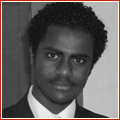Beyond the ballot: AI, voter rights and the future of elections in Africa
Posted: 28 March, 2024 Filed under: Bonolo Makgale | Tags: Access to Information, AI technology, Artificial intelligence, democracy, democratic engagement, digital democracy, digital technology, digital transformation, elections, electoral fraud, Fake News, governance, inequality, information age, right to vote, socioeconomic status, technological challenge, user-friendly interfaces, voter rights, Yiaga Africa Leave a comment Author: Bonolo Makgale
Author: Bonolo Makgale
Centre for Human Rights, University of Pretoria
Introduction
The year 2024 is an extraordinary year for elections in all its hazardous glory as it sets the record for the greatest number of people living in countries that are holding elections. More voters than ever in history will be heading to the polls in at least 64 countries representing a combined population of about 49% globally. Many of these votes will test the limits of democracy, while others will be exercises in rubber-stamping and the results of which, for many, will prove consequential for years to come. Yet, these elections are taking place against the backdrop of a relentless global evolution of digital technology which has ushered in a new era of unprecedented challenges in the democratic and political space. In an era of data manipulation and the growing influence of artificial intelligence, democracy stands at a critical crossroads.
To whom it may concern: South Sudan may not be ready for elections, yet democracy cannot wait
Posted: 25 July, 2022 Filed under: Joseph Geng Akech | Tags: African expert, challenges, democracy, democratic future, Election Commission, election readiness, elections, Humanitarian relief, International Institute for Democracy and Elections Assistance, legislation, permanence of transitions, political transition, public perceptions, Revitalised Peace Agreement, security stabilisation, South Sudan, Transitional Period, United Nations Mission in South Sudan, unprepared 2 Comments Author: Joseph Geng Akech
Author: Joseph Geng Akech
Assistant Professor of Law, University of Juba, and independent researcher in human rights & constitutional designs
Introduction
Early this year, Yach Garang, political science PhD student at the University of Juba authored a blog piece asking ‘will South Sudan be ready for its first democratic elections come 2023?’ According to him, certain benchmarks are critical for South Sudan’s democratic election readiness. These include security stabilisation, enactment of electoral laws, adoption of a new constitution and conduct of population census. While I agree with his ‘benchmarks’, I contend that South Sudan may not be ready for elections, but it is imperative to note that democracy cannot wait for a perfect environment.
This piece, therefore, is addressing those to whom the democratic future of the country remains a priority.
The South African local government elections and the COVID-19 pandemic
Posted: 20 September, 2021 Filed under: Tariro Sekeramayi | Tags: 2021, African Charter, African Court, Constitution of South Africa, COVID-19, democracy, Dikgang Moseneke, elections, electoral process, fairness, free and fair election, IEC, Independent Electoral Commission, Moseneke Report, municipal elections, pandemic, registration, South Africa, South African Local Government Elections, transparency, voting 1 Comment
Author: Tariro Sekeramayi
Centre for Human Rights, University of Pretoria
South Africa’s local government elections, to elect the municipal tier of government, are constitutionally mandated through section 159 of the Constitution of South Africa to take place every five years. These elections were scheduled to take place towards the end of 2021 and have been the subject of great deliberation in the nation. Conducting elections during a pandemic has been the subject of much debate on the continent and worldwide, with certain countries choosing to continue with elections amid the pandemic and others choosing to postpone their elections amid concerns of the risks involved. Nations on the continent that have held elections during the pandemic include Zambia, Malawi, Ghana, Rwanda, Uganda and Côte d’Ivoire. Given the extent of the risks of holding elections during the pandemic and mixed calls on whether to postpone or continue with elections in the nation, the Independent Electoral Commission (IEC) of South Africa ordered an inquiry commission to determine the nation’s capacity to hold free, fair elections during the initially scheduled period in October.
Making the right to vote of IDPs a reality: Lessons from Ethiopia
Posted: 8 July, 2021 Filed under: Enguday Meskele Ashine, Omotunde Enigbokan | Tags: African Convention for the Protection and Assistance of Internally Displaced Persons, displacement, EHRC, election monitoring, elections, Electoral Proclamation, Ethiopia, Ethiopian Human Rights Commission (EHRC), IDP, IDPs, Kampala Convention, legislation, national election, National Election Board of Ethiopia (NEBE), political rights, right to political participation, the right to vote 2 Comments Authors: Enguday Meskele Ashine & Omotunde Enigbokan
Authors: Enguday Meskele Ashine & Omotunde Enigbokan
Ethiopia held its national election on 21 June 2021. Internally displaced persons (IDPs) participated in the national election by casting their votes at their place of displacement for their respective constituency of origin through absentee ballot procedure. In certain areas, the government of Ethiopia took special measures such as providing logistic and security safeguard in order to enable IDPs to cast their vote.
The Ethiopian Human Rights Commission (EHRC) played a pivotal role in ensuring that IDPs participated in the national election, through engaging civic societies that advocated for the voting rights of IDPs. Furthermore, the EHRC prepared the Human Rights Agenda for Election 2021. This Agenda ‘calls upon political parties to address human rights protection of vulnerable groups including IDPs in their manifesto.’ In addition, the Commission advocated for electoral participation of IDPs by disseminating explanatory materials on IDPs and election, by conducting election monitoring focusing on IDPs’ participation in the national election and by conducting stakeholder’s discussions highlighting the significance of IDPs’ inclusion in the national election.’
Where is democracy? Reflections on the ascendancy of Mnangagwa as president of Zimbabwe
Posted: 27 November, 2017 Filed under: Charles Ngwena | Tags: Ayi Kwei Armah, constitution, coup, democracy, dictatorship, elections, Emmerson Mnangagwa, ethnic cleansing, Gukurahundi, Matebeleland, military, military intervention, national army, political change, Robert Mugabe, white minority rule, ZANU-PF, Zimbabwe, Zimbabwe Defence Force 3 Comments Author: Charles Ngwena
Author: Charles Ngwena
Professor of Law, Centre for Human Rights, University of Pretoria
What seemed unimaginable has happened. After an uninterrupted ‘reign’ of 37 years, Robert Mugabe, the de facto emperor of Zimbabwe, has ‘resigned’ from office. There has been genuine jubilation not least among those who have been at the receiving end of Mugabe’s increasingly despotic, corrupt and dysfunctional governance – the majority of Zimbabweans. Emmerson Mnangagwa has taken office as Mugabe’s successor. It is a historic moment. Since attaining independence in 1980, Zimbabweans have only known Mugabe as their political supremo – initially as prime minister and latterly as president. The fact of Mugabe’s departure from office, alone, has raised hopes that we might be at the cusp of a compassionate, fairer, humane and democratic Second Republic. At the same time, the clouds are pregnant with contradictions, counselling us not to throw caution aside even as we pine for change. Why is this?
The 2016 Zambia presidential election petition: How not to handle election petitions
Posted: 16 September, 2016 Filed under: Owiso Owiso | Tags: Africa, amendment, Constitution of Kenya 2010, Constitution of Zambia, Constitutional Court of Zambia, constitutional provisions, Edgar Chagwa Lungu, elections, Hakainde Hichilema, legislative drafting, president-elect, presidential election petition, Zambia 5 Comments Author: Owiso Owiso
Author: Owiso Owiso
LLB – Nairobi, PGD Law – KSL
If the drama that was Hakainde Hichilema v Edgar Chagwa Lungu (2016/CC/0031) has any lessons for the continent, it is how not to adjudicate upon a presidential election petition. Three judges of the court effectively succeeded in making an unfortunate mockery of their bench and risking the otherwise good image Zambia’s electoral process has enjoyed for a few decades now. We should, however, not be too quick to cast aspersions on the court and the learned judges. In order to understand what transpired in the Constitutional Court of Zambia, we have to look at the relevant legal provisions guiding presidential election petitions.
Stifling democracy – the Museveni way!
Posted: 6 April, 2016 Filed under: Solomon Joojo Cobbinah | Tags: 2016 Presidential Election, access to justice, Directorate of Public Prosecutions, Dr Kizza Besigye, elections, Forum for Democratic Change (FDC), free and fair elections, freedom of movement, Kampala High Court, peaceful demonstration, police brutality, President Yoweri Museveni, preventive arrest, Uganda, Uganda Police Force, wrongful arrest 2 Comments Author: Solomon Joojo Cobbinah
Author: Solomon Joojo Cobbinah
Ghanaian Journalist and Human Rights Activist
The Uganda Police Force is perhaps the most proactive in the entire world. They actively swing into action and arrest people they suspect are hatching plans to commit a crime. However, it seems the Police largely targets politicians, who are deemed to be “threats” to President Yoweri Museveni who has been in power for 30 years.
More than a month after Uganda’s February 2016 Presidential and Parliamentary Election, opposition leader Dr Kizza Besigye, flagbearer of the Forum for Democratic Change (FDC) continues to be under what the Police describes as “preventive arrest”. Preventive arrest is meant to stop him from leading protests against a declaration from Uganda’s Electoral Commission that President Museveni won the 2016 Presidential Election. Dr Besigye’s arrest on the Election Day restrained him from legally challenging an election he deemed fraudulent.
Right to stand for elections as an independent candidate in the African human rights system: The death of the margin of appreciation doctrine?
Posted: 19 August, 2013 Filed under: Adem Kassie Abebe | Tags: African Charter, African Commission on Human and Peoples’ Rights, African Court, African Court on Human and Peoples’ Rights, constitution, elections, Inter-American Court on Human Rights, International Covenant on Civil and Political Rights, international human rights, margin of appreciation doctrine, Mtikila, right to association, right to equality, right to political participation, right to stand for elections, Tanzania, Tanzanian Court of Appeal 7 Comments Author: Adem Kassie Abebe
Author: Adem Kassie Abebe
Post-doctoral Fellow, University of Pretoria
Although the right to stand for elections is recognised as an essential aspect of the right to political participation, international human rights law does not specifically address the right of individuals to stand for elections as independent candidates, for example, without being a member of and sponsored by a political party. In fact, the only implied reference to independent candidacy is to be found in General Comment No 25 of the United Nations Human Rights Committee, the organ in charge of monitoring compliance with the International Covenant on Civil and Political Rights, on the right to participation. The Committee observes that “[t]he right of persons to stand for election should not be limited unreasonably by requiring candidates to be members of parties or of specific parties” (paragraph 21). What constitutes an “unreasonable” limit to the right of persons to stand for election is not apparent. As a result of the lack of a clear rule, the law and practice in relation to independent candidates varies across borders. In some countries, individuals must be members of political parties to be able to stand for election. In others, they may stand for elections as independent candidates. In some others, independent candidates are allowed in relation to local elections but not in relation to parliamentary and presidential elections.
It is within this context of uncertainty that the African Court had to decide whether the ban on independent candidacy in Tanzania was compatible with the right to equality, the right to political participation, and the right to association in the African Charter on Human and Peoples’ Rights (Tanganyika Law Society and The Legal and Human Rights Centre and Reverend Christopher Mtikila v The United Republic of Tanzania, Applications 009 and 011/2011). This case is interesting in many respects. Firstly, the case presented the African Court the first opportunity to address the margin of appreciation doctrine. Secondly, the application presented a test case to evaluate the trajectory of the African Court towards the jurisprudence of other international and regional human rights organs on similar issues. Thirdly, Tanzania is not the only African country that bans independent candidacy. The decision of the Court therefore has consequences for many other African countries.


 Author: Paul Mudau
Author: Paul Mudau